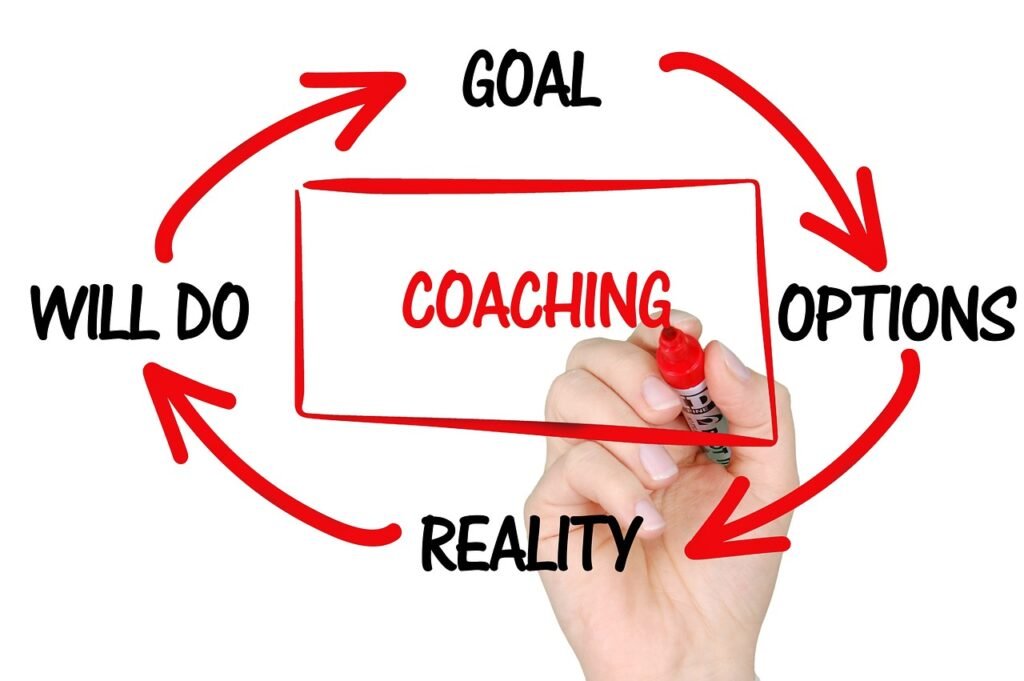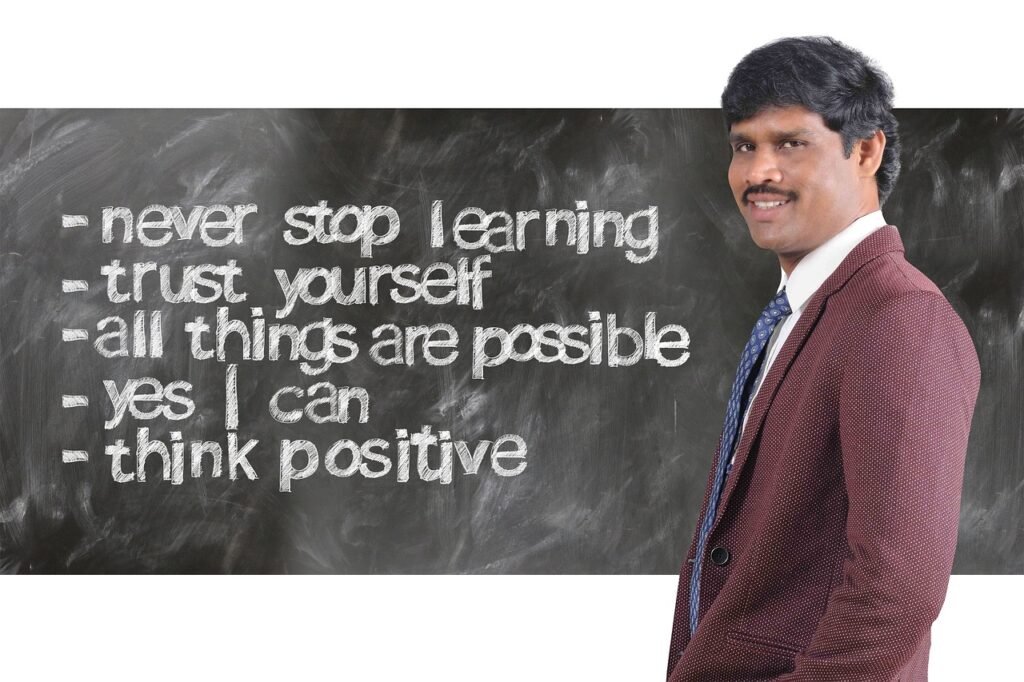
Intro
In today’s fast-paced and ever-evolving work environment, mastering emotional intelligence is not just an option but a necessity for modern leaders. Emotional Intelligence Training has become a critical component for those aspiring to lead effectively and foster a positive workplace culture. By enhancing skills like empathy, self-regulation, and social awareness, leaders can significantly improve team dynamics and drive success.
Understanding Emotional Intelligence and Its Importance

Emotional intelligence (EI) encompasses the ability to perceive, control, and evaluate emotions, both in oneself and in others.
This competency is indispensable for leaders who strive to build a supportive and efficient workplace environment.
Studies have highlighted that in schools where the Head Teacher embraced a more emotionally intelligent leadership style, there was a marked improvement in students’ academic achievements.
Additionally, cultivating social and emotional skills has shown to reduce the risks of violence, teenage pregnancy, and suicide among students.
Learning effective social and emotional skills greatly reduces these risks.
The ripple effect of emotional intelligence in professional settings is equally compelling.
Leaders who excel in EI can navigate complex interpersonal dynamics, enhancing team collaboration and morale.
This skill set not only helps in resolving conflicts but also in understanding team members’ needs and motivations, fostering a culture of empathy and mutual respect.
Consequently, organizations with emotionally intelligent leaders often witness higher productivity and employee satisfaction.
Embracing emotional intelligence enables leaders to connect more deeply with their teams, promoting a positive and productive workplace.
By valuing and practicing EI, leaders can drive meaningful change, both within their organizations and in the broader community.
Online Courses for Emotional Intelligence Development
Online courses provide an innovative and adaptable avenue for leaders aiming to enhance their emotional intelligence skills.
These courses are meticulously designed to offer interactive lessons, practical scenarios, and regular assessments that cater to the learner’s progress.
Through a blend of video tutorials, quizzes, and real-world case studies, participants can immerse themselves in a rich learning experience that builds on their understanding of emotional intelligence.
One of the key advantages of online learning is its flexibility.
Leaders can engage with the material at their own pace, fitting their studies around demanding schedules.
This ensures that the pursuit of emotional intelligence development does not interfere with professional responsibilities.
Many online platforms also foster a sense of community through discussion forums and group projects, allowing leaders to share insights and learn from peers across different industries.
This collaborative environment enhances the learning process by providing diverse perspectives and practical applications of EI concepts.
Moreover, some online courses offer certification upon completion, adding a valuable credential to a leader’s professional portfolio.
With a range of courses available, from introductory to advanced levels, leaders can select a program that aligns with their current knowledge and career aspirations.
By leveraging these comprehensive resources, leaders can continually refine their emotional intelligence, making significant strides in their personal and professional growth.
This blog has provided for you a Mini-Course for you to download below.
Downloadable Mini-Course-Emotional Intelligence (EQ) Development:
In-Person Workshops and Seminars

In-person workshops and seminars provide an immersive learning experience for those keen on developing their emotional intelligence.
These settings facilitate direct interaction with experts and peers, offering a platform for hands-on learning and immediate feedback.
Through role-playing exercises and group activities, leaders can practice and refine their emotional intelligence skills in a supportive environment.
One of the primary benefits of in-person training is the opportunity for real-time engagement.
Participants can ask questions, share experiences, and receive personalized guidance from seasoned professionals.
This dynamic interaction fosters a deeper understanding of emotional intelligence concepts and their practical applications.
Additionally, in-person workshops often include networking opportunities, allowing leaders to build connections with like-minded individuals from various industries.
This exchange of ideas and experiences can provide new perspectives and strategies for enhancing emotional intelligence in the workplace.
Many seminars also incorporate guest speakers who are experts in the field, providing valuable insights and inspiration.
These events often cover a broad range of topics, from conflict resolution to effective communication, ensuring a comprehensive approach to emotional intelligence development.
For those seeking a structured yet flexible learning environment, in-person workshops and seminars are an excellent choice.
By engaging in these interactive sessions, leaders can enhance their emotional intelligence skills, leading to more effective and empathetic leadership.
Corporate Training Programs for Teams

Corporate training programs offer a tailored approach to fostering emotional intelligence within teams, ensuring a cohesive and productive work environment.
These programs are designed to address the unique needs of a company, focusing on enhancing communication, reducing conflicts, and boosting overall productivity.
By integrating emotional intelligence training into the corporate culture, organizations can see a marked improvement in team dynamics and employee engagement.
Participants in these programs engage in a variety of interactive activities and workshops that simulate real-world scenarios, allowing them to practice and refine their EI skills.
This hands-on approach ensures that employees not only understand the theoretical aspects of emotional intelligence but also know how to apply them in their daily interactions.
Corporate training programs also provide opportunities for team members to receive immediate feedback from experts, which helps to reinforce learning and address specific challenges.
Additionally, these programs often include modules on leadership development, conflict resolution, and effective communication, ensuring a comprehensive approach to EI training.
The benefits of such programs extend beyond individual improvement; they contribute to creating a supportive and empathetic workplace culture.
This, in turn, leads to higher levels of employee satisfaction, retention, and overall organizational success.
By investing in emotional intelligence training for teams, companies can cultivate a more harmonious and efficient work environment.
Books and Literature on Emotional Intelligence

Books are an invaluable resource for those wishing to deepen their understanding of emotional intelligence.
Daniel Goleman, a leading author in this field, emphasizes the significant role of EQ in shaping our relationships.
His perspective on organizational dynamics is particularly enlightening: “Every level of organization is an emergent property of the one beneath it.
You can look at two people interacting and then see how that cascades into teams, groups, and whole organizations.”
This perspective highlights the ripple effect of emotional intelligence within organizations.
Other notable books that delve into the nuances of EI include “Emotional Intelligence 2.0” by Travis Bradberry and Jean Greaves, which offers practical strategies for enhancing one’s emotional intelligence, and “Primal Leadership” by Daniel Goleman, Richard Boyatzis, and Annie McKee, which explores how EI influences leadership effectiveness.
These texts provide readers with actionable insights and exercises to apply emotional intelligence principles in everyday scenarios, making them essential additions to any leader’s library.
By engaging with such literature, leaders can gain a comprehensive understanding of emotional intelligence and its profound impact on both individual and organizational success.
Emotional Intelligence Coaching and Mentorship

Coaching and mentorship offer a personalized path for leaders eager to elevate their emotional intelligence skills.
These one-on-one sessions provide tailored strategies and feedback specific to an individual’s unique challenges and goals.
A coach or mentor, experienced in emotional intelligence, can offer valuable insights and techniques to help leaders navigate their emotional landscape more effectively.
Through these personalized interactions, leaders receive direct support in understanding and managing their emotions, as well as those of their team members.
This guidance can be instrumental in enhancing self-awareness, improving communication, and fostering better relationships within the workplace.
Coaches and mentors also help identify blind spots and areas for growth, ensuring a comprehensive approach to emotional intelligence development.
Mentorship provides the added benefit of learning from someone who has already walked the path, offering practical wisdom and real-world experiences.
Whether it’s handling conflict, motivating team members, or navigating complex interpersonal dynamics, a mentor can share actionable advice and strategies that have proven effective in similar situations.
Emotional intelligence coaching and mentorship not only focus on developing core EI competencies but also emphasize their application in everyday leadership scenarios.
This practical approach ensures that the skills learned are immediately relevant and impactful, contributing to more empathetic and effective leadership.
Tools and Apps for Daily Emotional Intelligence Practice

In the digital age, numerous tools and apps are available to help leaders enhance their emotional intelligence on a daily basis.
These innovative resources offer practical exercises, mindfulness practices, and real-time feedback to keep users engaged in their emotional growth.
Apps like Mood Meter and Headspace provide structured activities designed to boost self-awareness and emotional regulation.
Mood Meter, for instance, helps users identify and label their emotions, offering insights into emotional patterns and triggers.
By tracking these emotions over time, leaders can better understand their emotional landscape and make informed adjustments to their behaviors and interactions.
Headspace, known for its mindfulness and meditation exercises, promotes a calm and focused mind, which is essential for effective emotional management.
Another notable app, EQ-i 2.0, offers comprehensive assessments and personalized feedback, helping leaders pinpoint areas for improvement and track their progress.
This data-driven approach ensures that emotional intelligence development is targeted and measurable.
Additionally, platforms like BetterUp provide personalized coaching sessions via an app, making expert advice accessible anytime, anywhere.
This integration of technology and coaching enhances the learning experience, offering leaders immediate, actionable strategies to improve their emotional intelligence.
By incorporating these tools and apps into their daily routines, leaders can consistently practice and refine their emotional intelligence skills, leading to more empathetic and effective leadership.
Measuring and Assessing Your Emotional Intelligence
Assessing emotional intelligence can provide valuable insights into areas for improvement and development.
The US Air Force, for instance, saved significant costs in recruiting by utilizing an EQ profile to assess potential candidates.
Regular assessments can help leaders identify strengths and weaknesses in their emotional intelligence, guiding their ongoing development efforts.
Various tools are available to measure emotional intelligence, including self-report questionnaires and 360-degree feedback from colleagues and subordinates.
These assessments typically cover core EI competencies such as self-awareness, self-regulation, motivation, empathy, and social skills.
By evaluating these areas, leaders can obtain a comprehensive understanding of their emotional intelligence profile.
Moreover, some advanced assessments provide detailed reports with actionable insights and personalized recommendations.
These reports can be instrumental in creating targeted development plans and setting specific, measurable goals for improvement.
Regular reassessment allows leaders to track their progress and make necessary adjustments to their strategies, ensuring continuous growth in their emotional intelligence capabilities.
Downloadable Emotional Intelligence Test:
The Role of Emotional Intelligence in Conflict Resolution

Navigating conflicts in the workplace requires a deft touch, and emotional intelligence is the cornerstone of effective conflict resolution.
Leaders with high emotional intelligence are adept at recognizing and understanding their own emotions, as well as the emotions of others.
This awareness allows them to approach disputes with empathy and a calm demeanor, which are crucial for defusing tension and fostering a constructive dialogue.
By employing emotional intelligence, leaders can identify the underlying emotional triggers that often escalate conflicts.
This insight enables them to address the root causes of disagreements rather than just the symptoms, leading to more sustainable resolutions.
For instance, by actively listening and validating the feelings of all parties involved, leaders can build trust and openness, creating an environment where issues can be discussed transparently.
Moreover, emotional intelligence equips leaders with the ability to regulate their emotional responses.
This self-regulation is vital in high-stress situations where a composed and rational approach can prevent conflicts from spiraling out of control.
Leaders who practice self-regulation set a positive example for their teams, demonstrating how to handle disputes with grace and professionalism.
Incorporating emotional intelligence into conflict resolution not only mitigates immediate issues but also enhances overall team dynamics.
It cultivates a culture of mutual respect and understanding, where team members feel valued and heard, ultimately contributing to a more harmonious and productive workplace.
Success Stories and Case Studies

Success stories vividly highlight the transformative power of emotional intelligence in the workplace.
L’Oreal, for instance, saw a remarkable increase in revenue by selecting sales agents based on emotional competencies.
These agents contributed to an annual net revenue increase of $2,558,360.
Similarly, Sheraton Studio City in Orlando experienced significant benefits from an EQ initiative, leading to enhanced guest satisfaction, reduced employee turnover, and a notable 24% boost in market share.
This initiative led to remarkable improvements in various performance metrics.
Such cases demonstrate how focusing on emotional intelligence can drive substantial business results.
These organizations didn’t just improve metrics—they cultivated a more empathetic and engaging environment that resonated with both employees and customers.
By prioritizing emotional competencies, companies can unlock new levels of performance and satisfaction, showcasing the real-world impact of emotional intelligence training.
Future Trends in Emotional Intelligence Training

As emotional intelligence continues to gain recognition as a crucial leadership skill, training methods are evolving to meet modern demands.
One emerging trend is the integration of artificial intelligence (AI) into training platforms. AI-driven tools can provide personalized feedback and adaptive learning paths, ensuring that leaders receive training tailored to their specific needs and progress.
This technology also offers real-time analytics, enabling a more nuanced understanding of emotional competencies.
Another trend is the shift towards more immersive and experiential learning experiences.
Virtual reality (VR) and augmented reality (AR) technologies are being used to create realistic scenarios where leaders can practice and refine their emotional intelligence skills.
These immersive environments allow for safe experimentation and immediate feedback, enhancing the learning process.
Moreover, there’s a growing emphasis on incorporating emotional intelligence training into educational curriculums at earlier stages.
By embedding EI principles into primary and secondary education, we can cultivate a generation of emotionally intelligent individuals who are better prepared for leadership roles in the future.
This proactive approach not only benefits individual development but also fosters a more empathetic and collaborative societal culture.
Additionally, micro-learning modules are becoming popular, offering bite-sized, focused training sessions that can be easily integrated into a leader’s daily routine.
These short, targeted lessons make it easier for busy professionals to continuously develop their emotional intelligence without needing to commit to lengthy training sessions.
Lastly, the focus on data-driven insights is increasing.
Leveraging big data and analytics allows organizations to measure the impact of emotional intelligence training more accurately and make informed decisions on how to improve their programs.
This trend underscores the importance of continuous assessment and refinement in developing effective emotional intelligence training strategies.
Accessing Expert Support and Continuous Improvement

Embracing continuous improvement is essential for mastering emotional intelligence.
Expert support can be a life-changer, offering tailored strategies and insights to keep leaders on the right path.
Whether through personalized coaching, interactive workshops, or insightful literature, accessing expert advice helps leaders identify areas for growth and implement effective EI practices.
By engaging with professionals who specialize in emotional intelligence, leaders gain access to proven methodologies and real-world applications that can be immediately implemented.
This ongoing guidance not only helps in refining EI skills but also ensures that leaders remain adaptable to evolving workplace dynamics.
The commitment to continuous learning and expert support fosters an environment where emotional intelligence thrives, driving both personal and organizational success.
